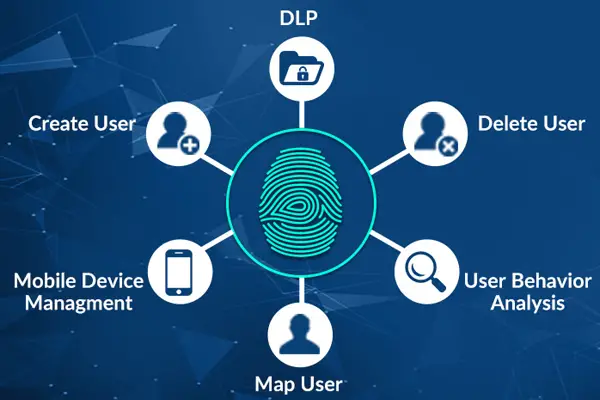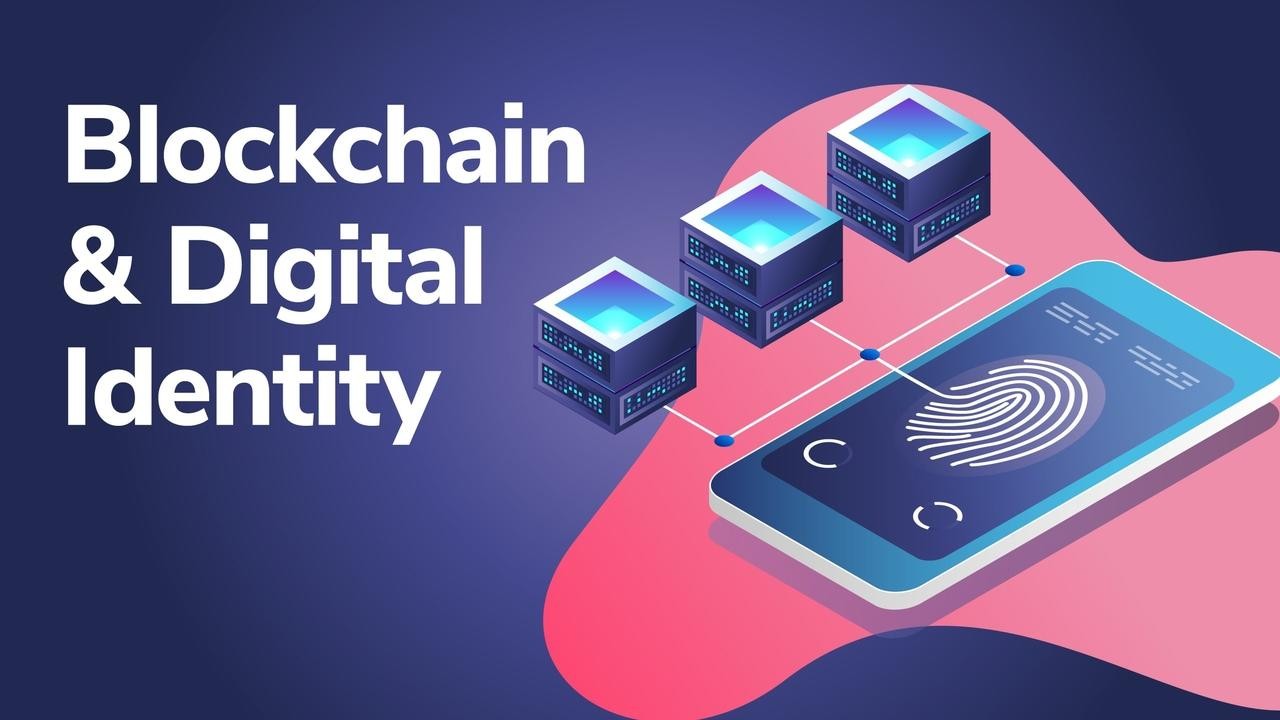Blockchain and Digital Identity: A Future of Security and Privacy

Digital identity is becoming increasingly important in today’s digital world. We use our digital identities to access online services, make purchases, and even vote. However, our digital identities are often vulnerable to fraud and identity theft.
Blockchain technology can help to secure and protect our digital identities. Blockchain is a distributed ledger technology that is used to record transactions in a secure and transparent way. Once a transaction is recorded on the blockchain, it cannot be altered or deleted.

This makes blockchain an ideal technology for storing and managing digital identities. By storing our digital identities on the blockchain, we can ensure that they are secure and protected from fraud and identity theft.
Introduction
In the past, our identities were tied to physical documents such as passports, driver’s licenses, and birth certificates. However, in today’s digital world, our identities are increasingly stored and managed online. This creates new challenges for securing and protecting our identities.
Blockchain technology offers a new way to secure and protect our digital identities. Blockchain is a distributed ledger technology that is used to record transactions in a secure and transparent way. Once a transaction is recorded on the blockchain, it cannot be altered or deleted.
This makes blockchain an ideal technology for storing and managing digital identities. By storing our digital identities on the blockchain, we can ensure that they are secure and protected from fraud and identity theft.
Subtopics
- What is a digital identity and why is it important?
- How blockchain addresses and overcomes notable flaws in the existing digital identity landscape?
- What are the most interesting ways to store and manage digital identity information on the blockchain?
- What are the current real-world blockchain-based digital identity projects and initiatives?
- What are the challenges to wider adoption of blockchain-based digital identity?
What is a digital identity and why is it important?
A digital identity is a representation of an individual’s identity in the digital world. It can include information such as your name, address, date of birth, and Social Security number. Digital identities are used to access online services, make purchases, and even vote.
Digital identities are becoming increasingly important in today’s world. However, they are often vulnerable to fraud and identity theft. This is because digital identities are often stored in centralized databases that can be hacked or compromised.
Blockchain technology can help to secure and protect digital identities. Blockchain is a distributed ledger technology that is used to record transactions in a secure and transparent way. Once a transaction is recorded on the blockchain, it cannot be altered or deleted.
This makes blockchain an ideal technology for storing and managing digital identities. By storing our digital identities on the blockchain, we can ensure that they are secure and protected from fraud and identity theft.
How blockchain addresses and overcomes notable flaws in the existing digital identity landscape?
Blockchain technology addresses and overcomes notable flaws in the existing digital identity landscape by providing a number of key advantages
- Data Proof: Security incidents and data breaches are common news today. Sensitive PII data is shared across multiple databases and even across multiple third parties to freely verify a person’s identity. Blockchain can unify these data points to offer a single “proof of identity” and reduce the risks of fraud.
- Ownership and Empowerment: With the help of blockchain, individuals gain autonomy over their own personal data, which gives them the ability to decide who can access their data and for what purpose. User consent becomes an essential requirement in a self-sovereign identity model.
- Privacy: The anonymity of blockchain ensures user privacy. Since there are no central authorities, there’s no risk of a single point of failure that can potentially lead to a data breach. Also, a person’s personally identifiable data is never revealed on the blockchain network. Instead, the focus shifts to verifiable claims made by trusted entities, which assures anonymity.
- Transparency: Anyone with access to the blockchain can see every transaction and action, which ensures that the system is fair, unbiased, and auditable.
- Efficiency: By storing and sharing identity data on a blockchain, we can streamline identity verification. This improves the user experience and reduces operating costs for businesses.
What are the most interesting ways to store and manage digital identity information on the blockchain?
There are a number of different ways to store and manage digital identity information on the blockchain. One approach is to use a “self-sovereign identity (SSI)” system. In an SSI system, individuals have control over their own digital identities. They can store their digital identities on a blockchain and then share them with others as needed.
Another approach is to use a “decentralized identity (DID)” system. In a DID system, digital identities are stored on a blockchain and managed by a decentralized network of nodes. This approach provides a high level of security and privacy.
What are the current real-world blockchain-based digital identity projects and initiatives?
There are a number of different blockchain-based digital identity projects and initiatives underway around the world. One of the most notable projects is the Sovrin Network. The Sovrin Network is a non-profit organization that is developing a global self-sovereign identity network.
Another notable project is the uPort project. The uPort project is developing a mobile app that allows users to create and manage their own digital identities.
What are the challenges to wider adoption of blockchain-based digital identity?
There are a number of challenges to wider adoption of blockchain-based digital identity. One challenge is that the technology is still relatively new. Another challenge is that there is a lack of standardization around blockchain-based digital identity.
However, there is also a growing number of businesses and governments that are exploring the use of blockchain-based digital identity. As the technology matures and standards are developed, we can expect to see wider adoption of blockchain-based digital identity.
Conclusion
Blockchain technology has the potential to revolutionize the way we manage and protect our digital identities. By storing our digital identities on the blockchain, we can ensure that they are secure and protected from fraud and identity theft.
Want to learn more?
Related entries you might be interested in:
Keywords: Digital identity, blockchain, security, privacy, self-sovereign identity, decentralized identity
FAQ
Will my personal data be safe using a blockchain digital ID?
Yes. Blockchain is very secure as it uses cryptography to protect user data and transactions. It is nearly impossible for unauthorized users to access your personal information stored on the blockchain.
Is blockchain digital ID becoming more popular?
Blockchain digital ID is still a relatively new concept, but it is gaining popularity as more people become aware of its benefits. Governments and businesses are also starting to explore the use of blockchain digital ID.
How do I get a blockchain digital ID?
There are a number of different ways to get a blockchain digital ID. One way is to use a self-sovereign identity (SSI) system. In an SSI system, you have control over your own digital identity. You can store your digital identity on a blockchain and then share it with others as needed.
What are the benefits of using a blockchain digital ID?
There are a number of benefits to using a blockchain digital ID. These benefits include:
- Security: Blockchain is a very secure technology. Once your digital identity is stored on the blockchain, it is very difficult for unauthorized users to access it.
- Privacy: Blockchain is a privacy-enhancing technology. Your personal information is not stored on the blockchain in a way that can be easily identified.
- Control: You have control over your digital identity. You can decide who can access your digital identity and for what purpose.
What are the challenges to wider adoption of blockchain digital ID?
There are a number of challenges to wider adoption of blockchain digital ID. These challenges include:
- Lack of awareness: Many people are still not aware of blockchain digital ID and its benefits.
- Lack of standardization: There is a lack of standardization around blockchain digital ID. This can make it difficult for different systems to interoperate.
- Cost: The cost of implementing blockchain digital ID can be high.

